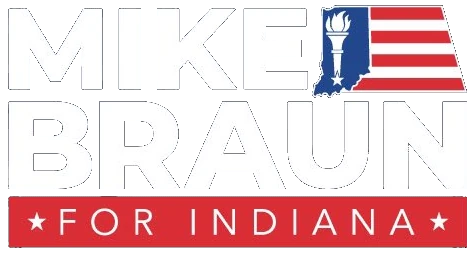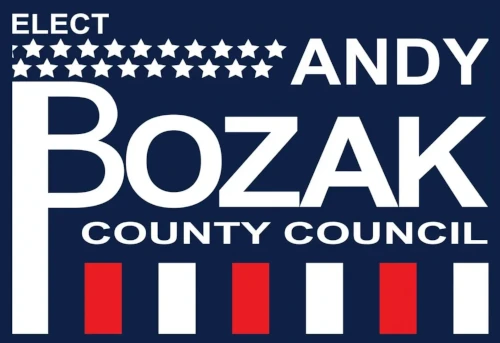Terror Trials: An Assessment
OK, I know that there have been too many long posts with out pictures already, but everybody is going to have to bear with me on this one. Last night, I had to write my final paper for my criminal law class. The topic that I chose, out of a long list of various topics, was Military Tribunals. I specifically analyze the reasons that military tribunals would be the best bet, and look at the different reasons that trying terrorists in civilian courts would not. I hope that you all enjoy, I've taken off the cover and reference page for ease of reading, if anybody REALLY wants to see the reference page, just shoot me an email (mattersofopinion@yahoo.com) and I'll be sure to send it.
Terrorist Trials
After the Revolutionary War, George Washington used military tribunals. They were also used by Andrew Jackson during the War of 1812, and also by Franklin D. Roosevelt during World War II. Following precedent, after the devastating attacks on September 11th, then President George W. Bush signed an executive order for the use of military tribunals to be used to try suspected terrorists. The reasons for this were made very clear: those that brought terror onto our soil would be punished swiftly and efficiently. This didn't really break any other past war-time practice (and in fact in comparison is relevantly tame), and was seen as the best way to avoid the legal windings that would interfere. These windings included everything from whether or not a suspected terrorists had been read his rights to sensitive and classified information that would be difficult to use in a court room.
What, exactly, made up the group that would qualify for such tribunals?
- If they are or were al Qaeda members.
- If they engaged in, aided or abetted, or conspired to commit acts of international terrorism.
- If they have harbored such individuals. (Davenport, page 189)
Those that satisfied the above criteria could either be tried in the United States or over seas as long as the following conditions were met.
- The military commission sits as trier of fact ans law; roles usually split between the jury and judge.
- The presiding officer can admit any evidence that has “probative value to a reasonable person.”
- The secretary of defense designates the prosecutor, and the defendant may have an attorney.
- Conviction need not be unanimous, but can by vote of two-thirds of the commission, and sentencing agreed upon by two-thirds of the commission.
- Any appeal goes to the president or the secretary of defense, and their decision is final. The order specifies that those tried by military tribunal can't appeal to any court in the United States, foreign country, or any international tribunal.
With President Obama agreeing to the use of military tribunals three six months ago combined with his commitment of closing Guantanamo Bay, it appeared that Americans would have the opportunity to see these tribunals in action and in mass amount. This, rationally, leads to a question of how effective these military tribunals are when actually applied to the terrorist suspects. Would the detainees be tried accordingly, or would rhetoric and here-say be used to determine guilt? There are many who believe that civil courts are not only better equipped to try these detainees, but that the civil courts are the only “right” way to try them. ( Hasian, pg. 338)
From the list of the many people that believe this, Eric Holder, the Attorney General for the Obama administration, has been the most recent person to argue this case. His argument is that the city of New York is the best place to try those that committed the horrible crimes. He is absolutely positive that justice will be met through these means.
There are a great many, however, that are not so sure, and much of that concern is based on the fact that the past administration made so many mistakes regarding their method of accumulating the methods used to prosecute the terrorists they felt was the best means possible. These can help to ensure that a killer will be let go, free to kill again. The mistakes made were rookie law mistakes that should never have happened, and could come around to haunt the previous administration.
For example, an ideological focus on bolstering executive power and a consequent lack of pragmatic flexibility in choosing tactics that would maximize the chances of gaining public and judicial acceptance of its framework for detention, interrogation, and trial of terrorists as well as surveillance of individuals resident in America ensured that many cases would be brought before the Supreme Court questioning the Constitutionality of these decisions. Granted, many in America would agree that it is better to see a hundred guilty men walk free than one innocent person put in jail, the fact remains that guilty men will probably be walking free. Not just guilty men, but men who planned out the worst attack on American soil our nation has ever seen.
Also, the administration failed to take into account the fact that so much of Americans' daily lives are litigated through laws and court decisions that the slightest suggestion of abuse or over-use of power would be either blown out of proportion or micro-analyzed. This leaves very little wiggle room when writing out policy and enforcing said policy. This combined with the length of time it took to actually try detainees through military tribunals helped to make the average citizen weary. (Frakt pg. 315)
Lastly, and perhaps most importantly, was a general naivety that Americans would not tire of the wars. Of course, the Abu Ghraib incident and the failures in Iraq could not have easily been foreseen, but those incidents still play on the average citizens trust of the government and their over all view of military tribunals and detainment. Because of these three major mistakes, there is a chance that terrorists will be given the opportunity to find their way back onto the battlefield. (McGinnis, pg.63)
Reasons why the Bush administration are to blame for this debacle aside, there are a great many reasons that military tribunals are the proper way to handle such terrorists. First, there is the fact that 9/11 was, in fact, an act of war just as much as the bombing of Pearl Harbor by Japan was an act of war. Al Quida is not a group of civilians but rather acts as a funded governmental body. Civilian courts are simply not set up to try such conspiracies, and the average American does not have the correct knowledge of precedents and previous wartime actions to properly persecute said criminals.
Also, there is the concern that because these citizens don't have this appropriate knowledge, they don't recognize that in intense field positions there often is not time to read any sort of Miranda Rights. When bombs are dropping out of the sky and other enemy combatants in the area are literally gunning for you, the last thing on a soldiers mind is whether this individual has American rights. Quite frankly, that issue becomes a whole nother topic in and of itself, because these terrorists aren't American citizens and there are some that argue that because of this they shouldn't be held to the same standard as those of us that are.
Accordingly, there is also the matter of enhanced interrogation. Should terrorists whom were water boarded (which has under this administration been considered a form of torture) be simply let go through the technicality that they were put under cruel and unusual punishment? This is no doubt an angle that will be used by any competent lawyer. Not only would this technicality be a problem when trying terrorists in civilian court, but the fact that they would be able to plead the fifth. This would more than likely not be as much of an issue since the terrorists will probably use this opportunity to take the stand and disparage and hate-speak about America, however it is something else to consider when examining the possibilities. (Boeving pg. 463)
There is, of course, always the possibility that organized terrorist groups may deliberately threaten jury members so the accused escapes penalty. This is more of a problem that would arise in, say, the United Kingdom because of the fact that Sharia law is much more common in Europe and subsequently encourages larger and often times more radical groups or Muslims, but it isn't something that can be entirely ruled out here in the United States.
Second, terrorism, at heart a political challenge, may itself politicize a jury. Where nationalist conflict rages, as it does in Northern Ireland, juries may be sympathetic to those engaged in violence and may acquit the guilty. Alternatively, following a terrorist attack, juries may be biased. They may identify with the victims, or they may, consciously or unconsciously, seek to return a verdict that conforms to community sentiment. Jurors also may worry about becoming victims of future attacks. Of course, since this isn't Ireland where terrorist attacks are, unfortunately, much more prevalent, this is also a lesser factor. However, the politicization of what should be a very bi-partisan issue, should not, again, be ruled out. (Donahue pg. 1321)
So, the reasons for military tribunals (which, of course parallel the arguments against civil courts handling such cases) are fairly clear and concise. The reasons against military tribunals, unfortunately, are not nearly as compelling, at least to me. The arguments are usually in favor of all of the problems that arise with military tribunals. The focus is generally on the abstract loopholes that were addressed earlier in this piece that are the reasons that the Bush administration is to blame for this being such a bouffant mess in the first place. Wherever each individual falls on this issue, the fact is that there will be massive amounts of precedents being set when the terrorists responsible for 9/11 are tried in civilian court in New York. The many problems that arise with military tribunals will be addressed, and loose ends that should have been tied up long ago will be finally secured. Justice, depending on which side of the argument one falls on, will undoubtedly be served.







